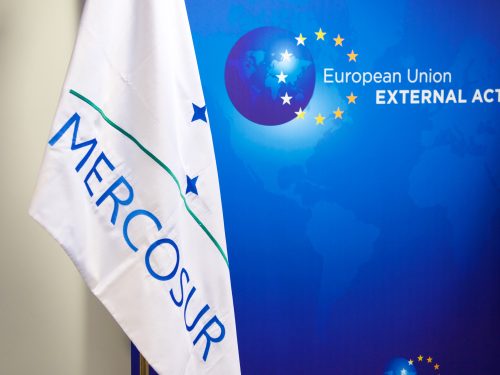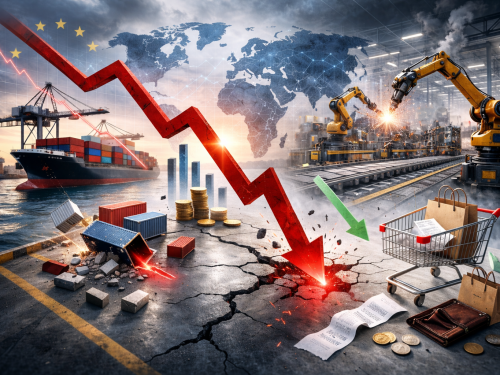News
Share on
A reminder of the responsibility of the European vote. "A double responsibility: for the citizens, who must perceive its importance at this time, and for our political representatives, who will have to impress a change of course in Brussels". With little more than a week to go before the elections, which will be held on 8 and 9 June, Riccardo Di Stefano, president of Confindustria's Young Entrepreneurs, chose to dedicate the 53rd Rapallo conference to the prospects of the EU and its place in global scenarios. Reflecting on the necessary choices and the impacts that there will be in our country. "Rights to Vote. Faces of Europe, looking at the world', is the title of the conference.
'Industry must be put at the centre of European policies, Europe's and Italy's competitiveness and therefore growth are at stake. We need to reflect on European values, on the effectiveness of the decision-making process, on freedom, which is too often taken for granted'. Said the president of the Young Entrepreneurs in an interview with Sole24Ore. 'In a world where individual and collective freedoms are increasingly compressed, it is crucial to think about European freedom. On how our being free is really substantiated, what we can concretely do to maintain and strengthen these freedoms of ours, the role our country can play'.
On European governance, 'the Treaties must be rethought,' Di Stefano stressed. I cite one example: unanimity voting blocks changes, it turns into a de facto right of veto. It should be overcome, also in view of a future enlargement of the EU. Italy, located at the centre of the Mediterranean and the European continent could, more and better than other countries, contribute to rewriting its rules. We will present our thoughts to politics, we will present the reasons of industry, which are also those of growth. Without industry there is no welfare, no wealth and no welfare. But in order to grow, we must be competitive: China has just launched a new $47.5 billion super fund to develop the microchip industry and challenge the US in its technological leadership; the US has already launched the Inflation Reduction Act, the Brics are gaining in weight'.
On the major transformational and technological challenges, Di Stefano added: 'The EU in recent years has had an ideological and anti-industrial attitude, particularly on the environment. There are many examples: the issue of packaging, the stop to the endothermic engine in 2035, which undermines our supply chains, excellence recognised worldwide. Even on Artificial Intelligence, the EU is too busy regulating and has not created a favourable environment for the growth of this technology. We must catch up because it is a lever that can make our entrepreneurial system, especially SMEs, take a modernisation leap'. Furthermore, 'We must break the deadlock on the latest generation of nuclear power. And aim for an energy mix that supports businesses. We need a European fund for transitions, green and digital. Common and coordinated spending on defence as well: we need a European defence, in the face of such a complex global scenario'.
Finally, on Industry 5.0 announced by Minister Urso by June, Di Stefano said: 'We have been waiting for it for months, it is the most important investment incentive tool that is sorely needed to be more competitive. In the last period, industrial production went badly, but Italian industry has shown that it is strong and that it has reacted better than others in Europe to the Covid, to the high cost of energy, and to the increase in the cost of raw materials. This is what is needed: to relaunch industrial policy in Italy and Europe. For the growth of the country and the EU'.




